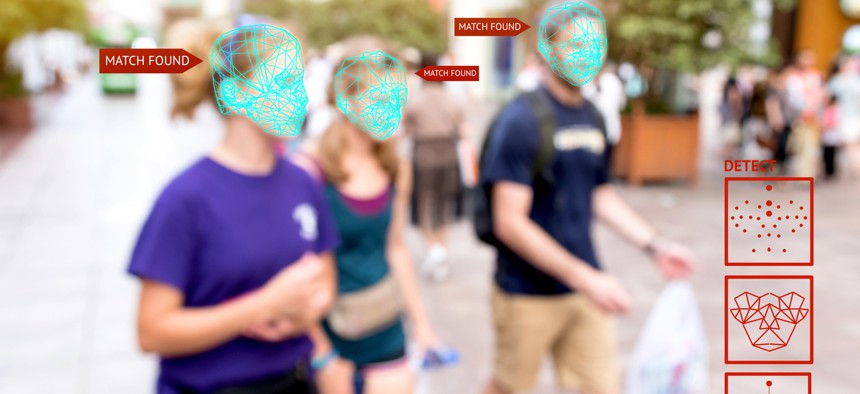Orlando Does an About-Face on Facial Recognition Technology

Zapp2Photo/Shutterstock.com
The city’s police department is moving forward with the second phase of testing weeks after the initial pilot program ended amid concerns raised by civil liberties groups.
Orlando’s police department resumed testing Monday of facial recognition software to “identify specific individuals” on designated cameras, after halting the program as its pilot expired two weeks ago.
Citing Amazon Rekognition’s “potential value” in furthering public safety efforts, the Florida city will continue internal testing by using video streams from city-owned cameras and the photos of seven police volunteers.
While announcing the pilot’s second phase, city officials tacitly acknowledged the public outcry around facial recognition technology from civil liberties groups.
“We have made good strides in testing this technology and believe it is important to continue this evaluation period to determine if it’s a concept that could add immeasurable value in enhancing the City’s public safety mission in a manner that balances reasonable privacy concerns,” Police Chief John Mina said in a statement.
Phase two parameters bar the use of public images in testing, prohibit the software from being employed in investigations, and comply with privacy laws on the books to avoid civil rights violations, according to a City Hall memo.
Though the number may be expanded, eight video streams are currently designated for the pilot: four are at Orlando Police Headquarters; three Innovative Response to Improve Safety, or IRIS, cameras; and one at another, unidentified city facility.
Facial recognition technology is already used in airports, by cell phones and at sporting events. Rekognition detects objects and faces within pictures and searches the latter against faces in a database, returning up to five matches within four to five seconds and ranked by accuracy—which must be greater than 50 percent.
The American Civil Liberties Union of Florida, which initially urged the suspension of the pilot so there might be public debate, could not be immediately reached for comment.
Orlando anticipates being able to identify and apprehend suspects more quickly and safely using the technology, as well as locating missing persons and registered sex offenders illegally on school or youth center property.
“The objective is to determine if this technology would reliably allow law enforcement to locate specific identifiable dangerous threats as they move around the city closing in on possible targets,” the memo says.






